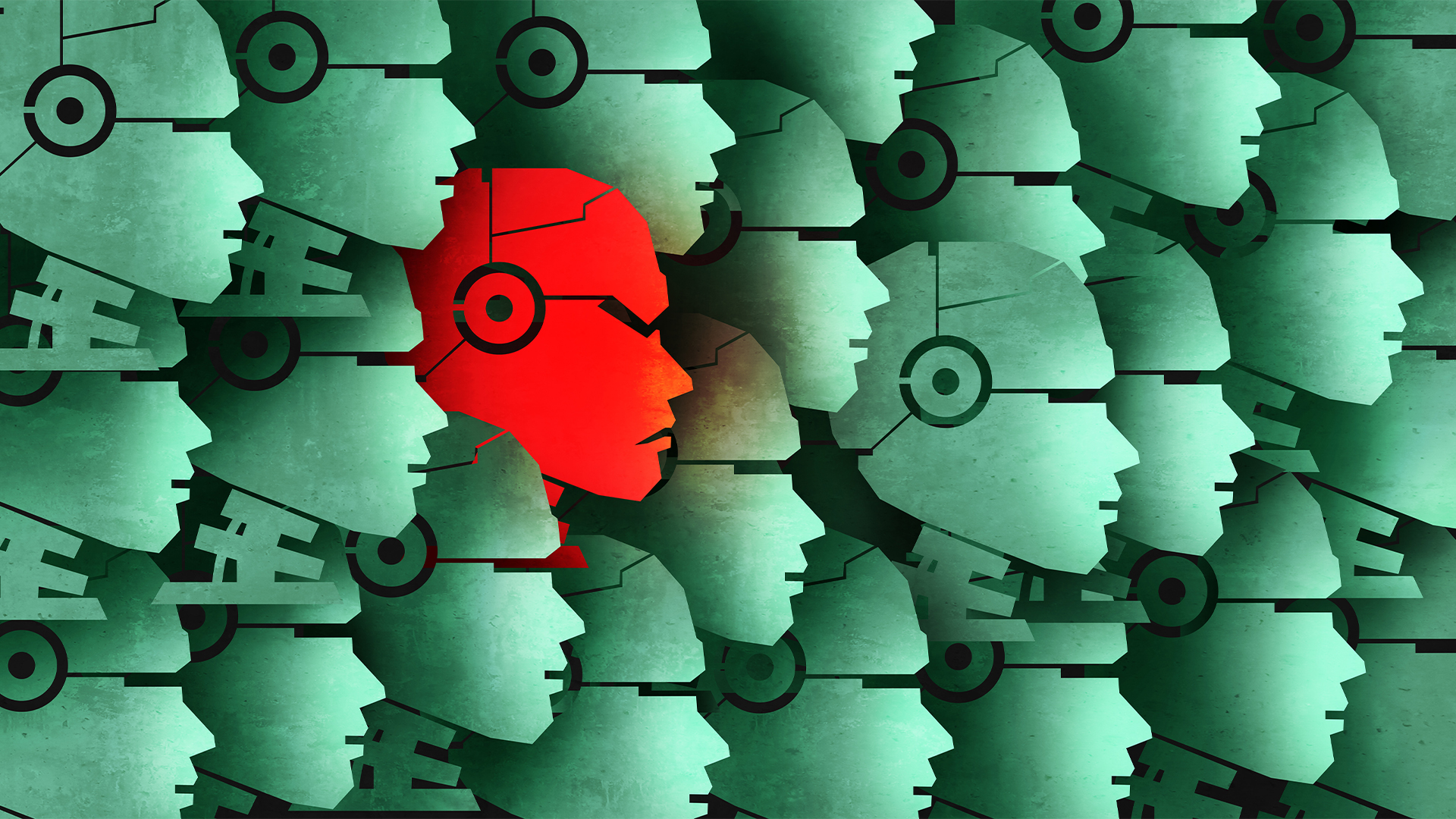How AI agents are being deployed in the real world
These intelligent systems, capable of independent decision-making and learning, are transforming how organisations detect, respond to, and manage security problems


The integration of AI agents into real-world applications is rapidly advancing, particularly in the security field, where the sheer volume of threats, with eight billion records compromised in 2023 alone, necessitates more autonomous solutions.
These agents, empowered by agentic AI principles where AI's ability to independently handle tasks is reportedly doubling every seven months, offer hugely transformative benefits. They enhance the ability to detect, respond to, and mitigate potential threats with unprecedented efficiency. Unlike traditional automated systems, AI agents possess the autonomy to learn, adapt, and act based on their observations, making them invaluable in the modern security landscape.
Understanding agentic AI and security-focused AI agents
At its core, agentic AI refers to AI systems that can operate with a degree of autonomy. These systems are designed to perceive their environment, make decisions, and take actions to achieve specific goals without constant human intervention.
They can learn from interactions, adapt to new information, and proactively pursue objectives. This is a significant step beyond traditional AI models that might excel at pattern recognition or prediction but require human direction to act on those insights. As EC-Council University notes, an Intelligent Agent, whether hardware or software, "is designed to optimize the probability of accomplishing a defined objective through its capacity to observe, learn, and make informed decisions."
In the security field, an AI agent is software that applies agentic AI principles to carry out protective tasks. It combines machine learning, natural language processing, and reasoning to interpret context, detect security events, and perform containment or remediation actions. These agents can find vulnerabilities in complex code structures, identify irregularities in user login patterns, and recognize new types of malware that skirt traditional detection methods.
Conversely, not all automated security tools are AI agents. Systems that block known malicious IPs based on a static list or deploy updates on a schedule without dynamic decision-making aren't AI agents. The key difference is an AI agent's capacity for autonomous decision-making, learning, and goal-oriented actions.
AI agents in action: Bolstering organizational defences
The practical application of AI agents in security is moving from theoretical discussions to tangible deployments, offering significant benefits across several facets of an organization's defensive strategy.
Sign up today and you will receive a free copy of our Future Focus 2025 report - the leading guidance on AI, cybersecurity and other IT challenges as per 700+ senior executives
One primary area is proactive threat detection and response. AI agents continuously monitor data from networks, endpoints, and cloud services, identifying anomalies faster than human teams. For example, they can detect unusual data access patterns indicative of insider risks or unauthorised access attempts, isolate affected endpoints, and alert security analysts with summaries of the events and actions taken.
Additionally, AI agents contribute to intelligent vulnerability management. They correlate vulnerability information with asset criticality and threat intelligence, enabling more effective prioritisation of remediation efforts. Advanced agents might even test potential fixes in sandboxed environments before recommending or applying them.
AI agents also enhance incident investigation and analysis. They quickly gather relevant data from multiple sources, correlate alerts, reconstruct timelines of hostile actions, and provide contextual information. This reduces the manual effort involved in investigations, allowing human experts to focus on strategic decision-making and complex problem-solving.
Finally, AI agents are increasingly capable of automated remediation and containment. In predefined scenarios, they can autonomously contain security events by isolating compromised systems, blocking malicious processes, or revoking compromised credentials.
This capability is bolstered by growing confidence in AI's role; for instance, a recent Microsoft Security report, 'Securing the AI-Powered Enterprise,' found that 47% of current users of AI for security are 'very confident' in its ability to make critical security decisions in high-stakes scenarios. The speed of these automated responses can be key to mitigating the impact of security incidents.
Real-world examples: Highlighting the value
While the field is evolving, several platforms are highlighting the power of AI agents. Microsoft Security Copilot is a prominent example, designed as an AI-powered security analysis tool. It leverages large language models (LLMs) and Microsoft's threat intelligence to help security professionals understand and respond to security events more effectively. It can summarise complex alerts, guide analysts through investigation steps, and even help draft incident reports.
Its agent-like capabilities lie in its ability to process natural language queries, synthesise information from multiple security tools, and propose courses of action. Discussing tools like this, PwC Australia notes that "AI is revolutionising security operations by enhancing threat detection and response," and that such tools allow security analysts to "spend more time on more complex, higher-risk tasks where human judgement is required."
Beyond specific branded solutions, the principles of AI agents are being embedded into broader security platforms. For example, Extended Detection and Response (XDR) platforms increasingly incorporate AI to correlate signals across different security layers, such as endpoints, networks, cloud environments, and email systems, and automate response actions. These systems often feature agent-like components that operate on endpoints to gather data and carry out commands.
Similarly, Security Orchestration, Automation, and Response (SOAR) tools are also evolving to include more sophisticated AI-driven decision-making. This moves them beyond predefined playbooks to more adaptive responses based on real-time analysis. While some SOAR capabilities are being absorbed into broader platforms, the drive for intelligent automation persists.
Specialized AI firms are also creating autonomous systems for specific use cases. Deception technology is one such area, where AI agents manage dynamic decoy environments to trap and analyse those with malicious intent, gathering intelligence without posing any risk to real-world systems.
These AI-driven approaches enhance speed and accuracy in identifying security events, reduce false positives, allow scalability of security operations without needing more human resources, and enable security teams to focus on strategic tasks.
The path forward
The deployment of AI agents in security is not a panacea. Considerations around oversight, ethical implications, the potential for adversarial manipulation of AI systems themselves, and ensuring data privacy are crucial. Retsef Levi, Professor of Operations Management at the MIT Sloan School of Management, cautioned about the “Very real risk of creating complex systems with opaque operational boundaries and eroded human capabilities that are prone to major disasters and are not resilient."
However, their potential to significantly enhance security teams is undeniable. As AI technologies mature, they will become essential in modern enterprises, constantly working to anticipate, identify, and neutralize security issues.
The goal is to create a symbiotic relationship where AI handles routine tasks and data analysis, while human experts provide strategic oversight for complex security issues.
Rene Millman is a freelance writer and broadcaster who covers cybersecurity, AI, IoT, and the cloud. He also works as a contributing analyst at GigaOm and has previously worked as an analyst for Gartner covering the infrastructure market. He has made numerous television appearances to give his views and expertise on technology trends and companies that affect and shape our lives. You can follow Rene Millman on Twitter.
-
 Honor MagicBook Pro 14 review
Honor MagicBook Pro 14 reviewReviews Perhaps a little too ostentatious for the office, but a solid laptop offering with great cross-OS features
-
 Lenovo wows at MWC with concepts for a modular ThinkBook and desktop AI-devices
Lenovo wows at MWC with concepts for a modular ThinkBook and desktop AI-devicesNews A new modular ThinkBook AI PC from Lenovo is the star of the show, with a delightfully versatile proof of concept
-
 Salesforce targets telco gains with new agentic AI tools
Salesforce targets telco gains with new agentic AI toolsNews Telecoms operators can draw on an array of pre-built agents to automate and streamline tasks
-
 Kyndryl wants to help enterprises keep AI agents in line – and avoid costly compliance blunders
Kyndryl wants to help enterprises keep AI agents in line – and avoid costly compliance blundersNews Controls become machine‑readable policies that AI agents can read and must obey
-
 Want to deliver a successful agentic AI project? Stop treating it like traditional software
Want to deliver a successful agentic AI project? Stop treating it like traditional softwareAnalysis Designing and building agents is one thing, but testing and governance is crucial to success
-
 OpenAI's Codex app is now available on macOS – and it’s free for some ChatGPT users for a limited time
OpenAI's Codex app is now available on macOS – and it’s free for some ChatGPT users for a limited timeNews OpenAI has rolled out the macOS app to help developers make more use of Codex in their work
-
 ‘In the model race, it still trails’: Meta’s huge AI spending plans show it’s struggling to keep pace with OpenAI and Google – Mark Zuckerberg thinks the launch of agents that ‘really work’ will be the key
‘In the model race, it still trails’: Meta’s huge AI spending plans show it’s struggling to keep pace with OpenAI and Google – Mark Zuckerberg thinks the launch of agents that ‘really work’ will be the keyNews Meta CEO Mark Zuckerberg promises new models this year "will be good" as the tech giant looks to catch up in the AI race
-
 Half of agentic AI projects are still stuck at the pilot stage – but that’s not stopping enterprises from ramping up investment
Half of agentic AI projects are still stuck at the pilot stage – but that’s not stopping enterprises from ramping up investmentNews Organizations are stymied by issues with security, privacy, and compliance, as well as the technical challenges of managing agents at scale
-
 ‘There’s been tremendous agent washing’: Dell Technologies CTO John Roese says the real potential of AI agents is just being realized – and they could end up managing humans
‘There’s been tremendous agent washing’: Dell Technologies CTO John Roese says the real potential of AI agents is just being realized – and they could end up managing humansNews As businesses look for return on investment with AI, Dell Technologies believes agents will begin showing true value at mid-tier tasks and in managerial roles.
-
 Retailers are turning to AI to streamline supply chains and customer experience – and open source options are proving highly popular
Retailers are turning to AI to streamline supply chains and customer experience – and open source options are proving highly popularNews Companies are moving AI projects from pilot to production across the board, with a focus on open-source models and software, as well as agentic and physical AI
